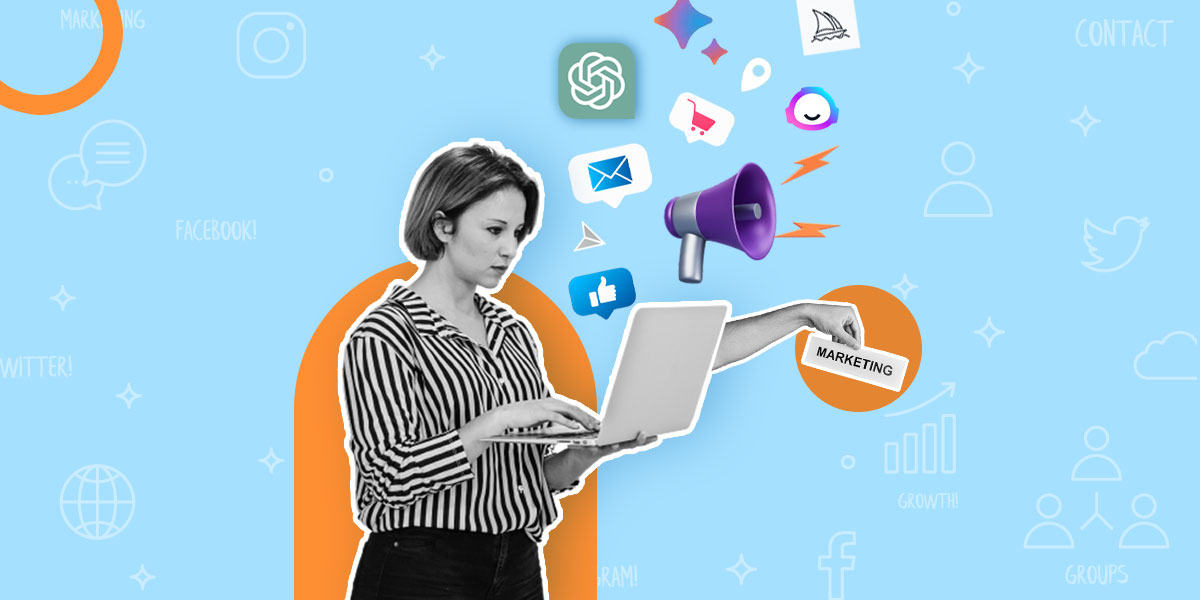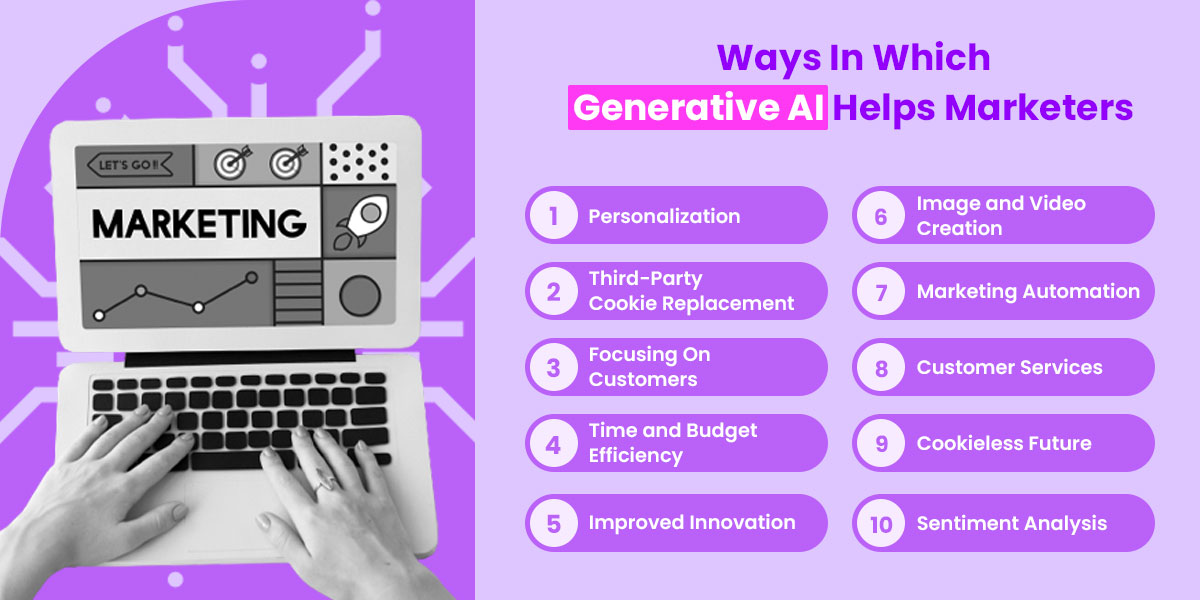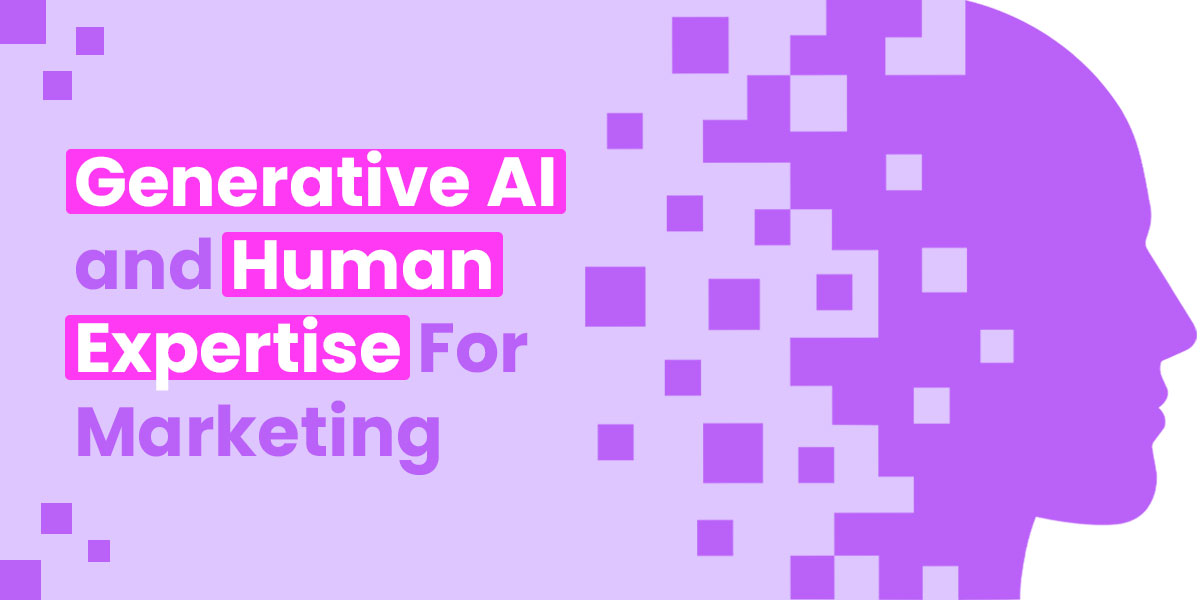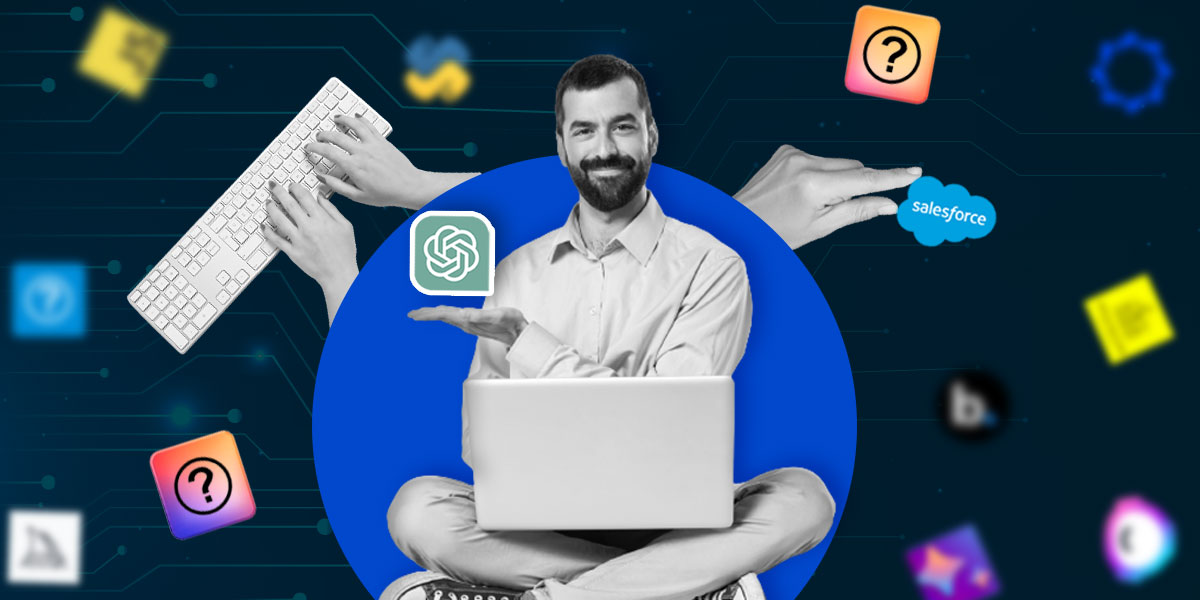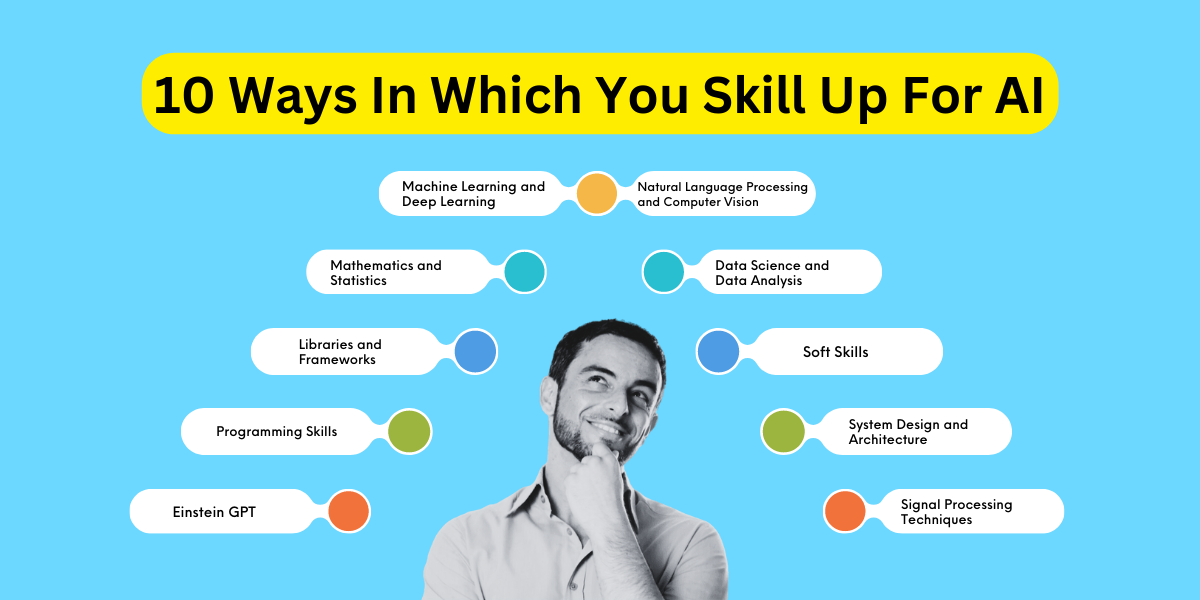What is Generative CRM and How Can It Help Your Business?
Customer relationship management has long been at the centre of successful businesses helping companies to manage and analyze their interactions with customers. However, with technological advancements, traditional CRM systems are developing to include cutting-edge AI.

Generative CRM is a combination of generative artificial intelligence and customer relationship management. It refers to a subset of AI algorithms capable of generating new and human-like content based on the present data. The algorithms including GPT-4 are capable of creating coherent and relevant text, images, and other media that allow businesses to offer personalized customer experiences.
The integration of generative AI in CRM systems encourages businesses to harness the power of advanced language models for automating and improving customer interactions. The combination helps companies to understand to anticipate customer needs better while customizing customer strategies and improving customer satisfaction.
In this blog, we will have a look at what generative CRM is and how can it help your business.
What is Generative CRM?
Generative CRM includes the power of generative AI with customer data for enhancing productivity and efficiency. It helps in performing many functions such as answering queries, creating an email, managing conversational text, and addressing human diseases and the environment. The more people continue to use it, the more it will get smarter.
Generative CRM helps in performing challenging tasks and freeing up your time to focus on important projects. It helps in looking at the internet and important data for further crafting better responses. The fundamental job of generative CRM is that it really reduces the friction of going from one idea to a first draft. This includes writing a document on the previous meetings you may have had or summarizing conversation streams to look for insights for improving your approach.
How Does Generative CRM Help?
People spend so many hours carrying out mundane tasks only to get their jobs done. They search through data and research for coming up with a campaign for new campaigns, writing and rewriting, and finally scramble to find a balance in conversations with angry customers.
Imagine a tool that could streamline all of this regardless of the industry or department you may be working in. The generative CRM tools combine the power of generative AI with CRM all across many industries. There are a number of ways in which this is helpful. They are all mentioned below.
1. Reduced Time to Value
AI has been around for a while now but the generative AI products have the ability to help people across industries work a lot more efficiently. This can have a direct impact on building and maintaining customer relationships.
The superpower of generative AI for CRM helps in reducing time to value. This technology helps in filtering out the noise that many may encounter on the internet otherwise. Generative CRM is smart enough to know what to look for if you are asking the right questions.
2. Freeing Humans for High-Value Work
Let’s for a second imagine that you’re trying to get a new customer and for achieving this, you are spending hours through your data to improve your sales pitch. This can eventually bring you to search your network and the company website for finding a person that helps in getting your foot in the door.
The repetitive and mundane tasks can tire you while wasting precious time that could be spent on building new relationships. All the tasks done in a CRM can be repeated and automated. The simple idea of speeding up things makes everything quick and productive. It also gives you more time to work on building relationships with people you may be selling to.
3. Artificial Intelligence
Security is key to generative CRM and builds on long-standing principles for trusted AI with defined guidelines that can address problems with generative AI. The generative AI models depend on available data and generative CRM is rooted in safe, private customer data while also drawing on the public data.
An important part of doing things is making the technology trustworthy and impactful for businesses. Systems such as ChatGPT are very powerful and also built on public data sources. However, the technology should be grounded in data when the aim is to work in the enterprise. Blending the public and private data makes a trusted and valuable experience for customers.
4. Personalization
Another reason which makes generative CRM a great deal for businesses is the fact that it can offer unparalleled personalization by creating specific and contextually relevant content for all customers.
The personalization level allows businesses to communicate with customers in ways that resonate with them leading to strong relationships and better brand loyalty. In addition, personalized content is also more likely to respond positively to messages that feel tailor-made.
5. Scalability
Traditional CRM systems often struggle for scaling with the business growth which then leads to increased workloads for customer support teams.
The generative AI CRM also offers a scalable solution by automating multiple customer interactions. As a result, businesses can maintain a high-quality customer experience even as their customer base keeps increasing.
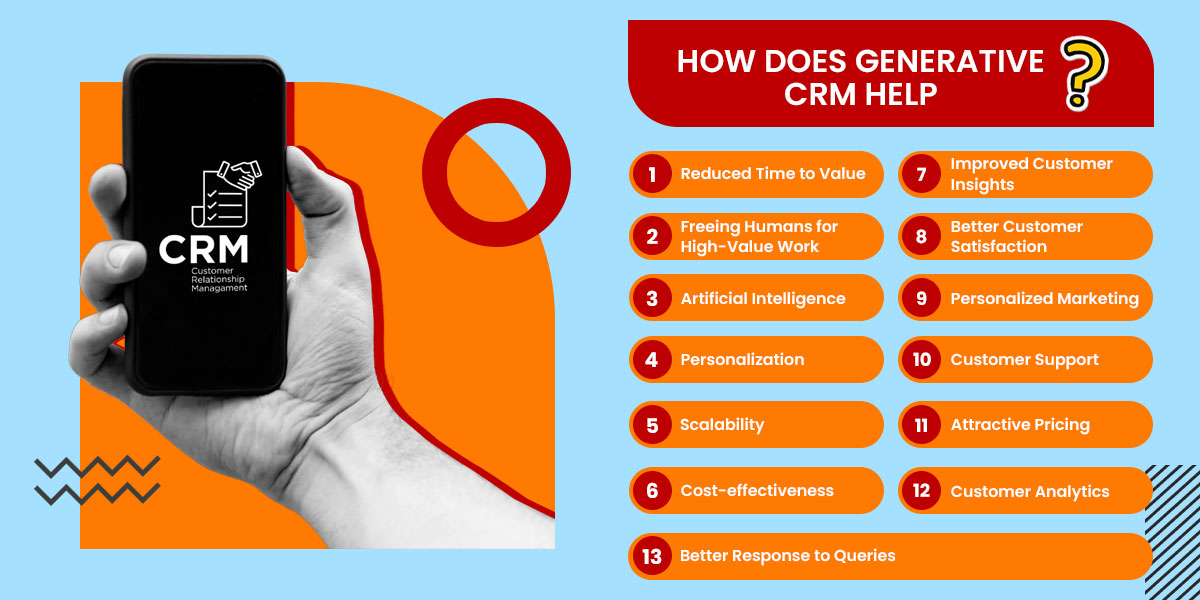
6. Cost-effectiveness
The process of including generative AI into the CRM systems can help businesses save on labour costs by automating routine tasks including responding to frequently asked questions or sending personalized messages.
It is possible to free up customer support and sales representatives by helping companies allocate resources efficiently and also improving the bottom line eventually.
7. Improved Customer Insights
Generative AI CRM systems have the ability to analyze customer data a lot more effectively as compared to traditional CRM solutions while offering valuable insights into customer preferences and behaviour patterns.
The insights so obtained can be effectively used for refining marketing strategies from product development and for driving sales growth.
8. Better Customer Satisfaction
When you offer personalized, engaging, and timely communication, the generative AI CRM helps in improving customer satisfaction levels to a great level.
Satisfied customers are more than likely to stay loyal to one brand and recommend it to others while making repeat purchases and leading to long-term business success.
9. Personalized Marketing
The traditional CRM system relies on segmenting customers into various groups on the basis of demography or behavioural data while targeting the groups with relevant marketing campaigns.
Generative AI CRM helps businesses to take personalization a step ahead by creating tailored content for all customers. This includes personalized email campaigns, social media content, and dynamically generated website content that can appeal to preferences and interests.
10. Customer Support
Customer support is an important aspect of CRM that can influence customer satisfaction and loyalty. Generative AI CRM can change customer support processes by using AI-powered chatbots and virtual assistants for handling everyday questions and offering instant and personalized support.
The AI agents do not just understand and respond to customer questions but also generate precise and detailed responses that ensure seamless customer support.
11. Attractive Pricing
With detailed analysis of customer behaviour and preferences, generative AI CRM helps businesses to develop an effective pricing strategy and promotional offer. This can be used for adjusting prices in real-time on the factors such as demand, willingness to pay, and competitor pricing.
Personalized promotions can also be tailored to individual customers based on their purchase history and other preferences. This also increases the likelihood of conversion and customer satisfaction.
12. Customer Analytics
Generative AI helps businesses to uncover deep insights about their customers with a detailed analysis of data including historical interactions, purchase patterns and customer feedback.
A good understanding of underlying patterns in customer behaviour enables businesses can make data-driven decisions for improving customer satisfaction and loyalty.
13. Better Response to Queries
Sifting through information can become way simple with the use of generative AI. There are many tools that can write accurate responses to general questions. You can easily deliver complex information in a simple-to-understand way.
This is particularly true for the service team. The use of generative AI can help in answering even the 8 simplest questions that are not already pre-loaded in the chatbot.
Related Read: How Can Generative AI Help Marketers?
What Does Generative CRM look like?
There are many ways in which generative CRM can be put to use. These ways are mentioned below.
1. Services
Generative CRM helps in creating important knowledgeable articles, improves response time, analyzes customer feedback, and also offers responses to frequently asked questions.
Imagine you are having a virtual chat with a customer and while they are texting you, Einstein GPT is looking through many web pages and data for helping to create the best reply. You can effectively edit the reply for ensuring that it does not sound like a machine but a person.
2. Sales
Generative CRM helps in improving lead generation, predicting future sales trends, analyzing sales data, and creating personalized communication. For instance, generative CRM helps in finding updated information on an organization and also helps in targeting appropriate contacts in a company.
You can efficiently draft an email and also give the most current information about a company for preparing better for a meeting.
3. Marketing
Generative CRM can design visually attractive and personalized ads for targeting specific audiences on the basis of browsing and purchase history, building predictive models, forecasting customer purchasing behaviour, and creating influencer campaigns.
Generative CRM helps in designing a targeted promotion for social media that can effectively describe a specific area and also target customers who are likely to visit a store based on previous purchases or their social media posts and comments.
Einstein GPT By Salesforce
Einstein GPT is a generative AI customer relationship management technology that has been launched by Salesforce for delivering AI-created content across sales, service, marketing, IT, and commerce. Salesforce can change all customer experiences with the right use of generative AI.
Einstein GPT infuses the proprietary AI models with the generative AI from a pool of partners while also using real-time data from the Salesforce Data Cloud which further unifies a company’s customer data.
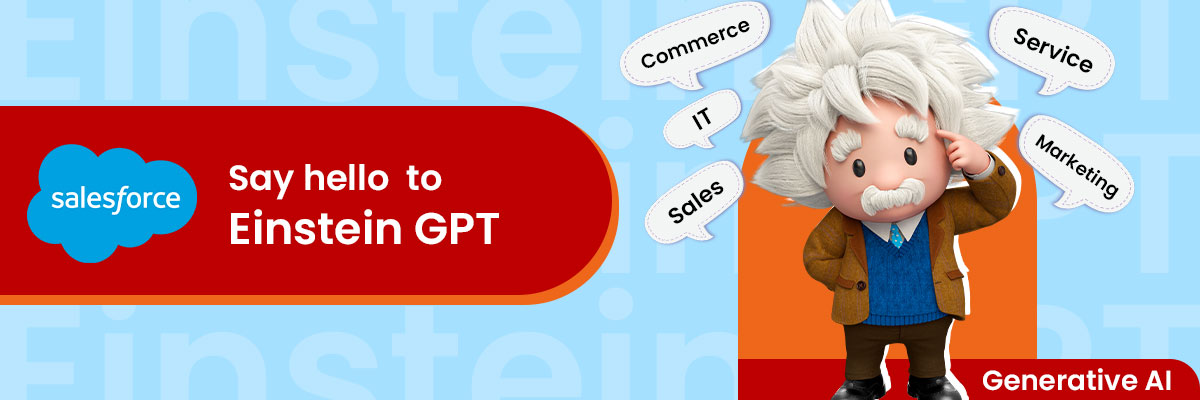
Customers can connect their data to advanced AI models and even choose their own external model while using natural language prompts directly in their Salesforce CRM for generating content that adapts to changing customer information and needs in real-time.
All said and done, the world is presently experiencing a profound technological shift with the rise of real-time technologies and the spread of generative AI. This comes at a time when all organizations are more focused on connecting with their customers in an intelligent, automated, and personalized way. Companies that understand the importance of using generative AI will have an edge without any doubt.
Related Read: What is Real-Time Marketing and How Does It Help?
Embracing the Future: Unleashing the Potential of Generative CRM for Enhanced Customer Relationships

Generative CRM comes with the power of generative AI models with traditional CRM systems that can effectively revolutionize customer relationship management. It helps businesses to create customized content, offer customer support, automate CRM processes, and also leverage advanced customer analytics.
Using the benefits of generative CRM can allow your business to experience enhanced customer experience, better efficiency, improved decision-making, and ensure data-driven personalization.
What is Generative CRM and How Can It Help Your Business? Read More »
AI, CRM Services
